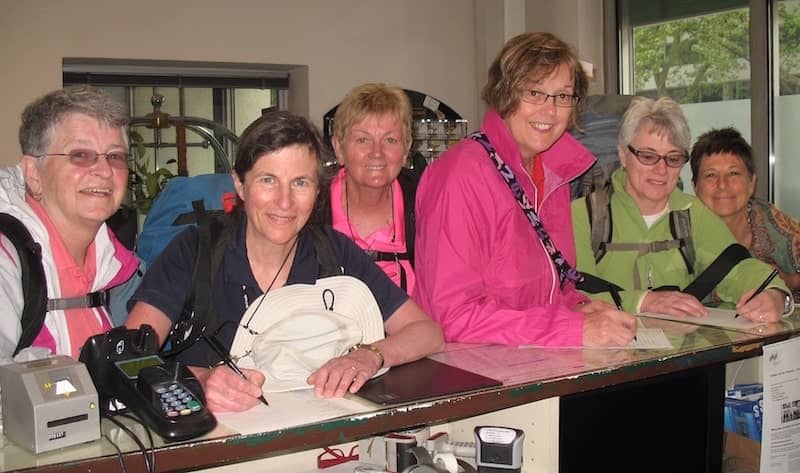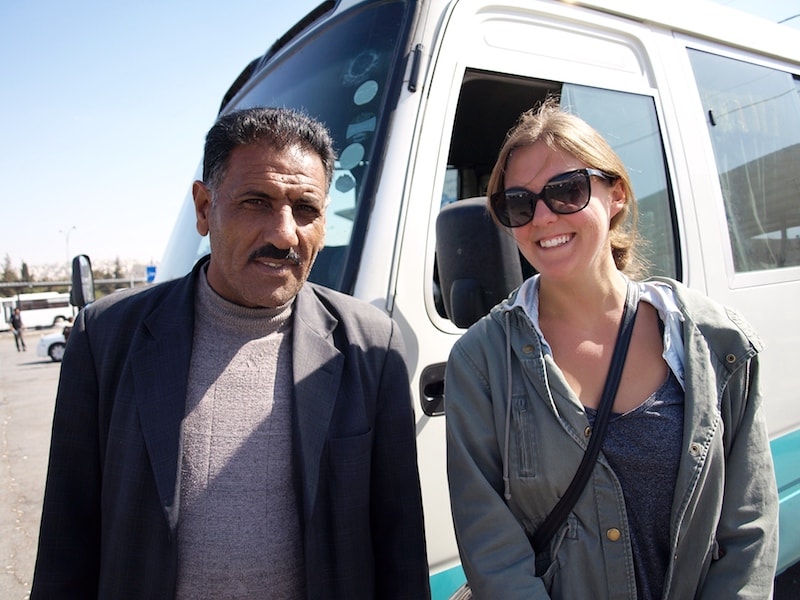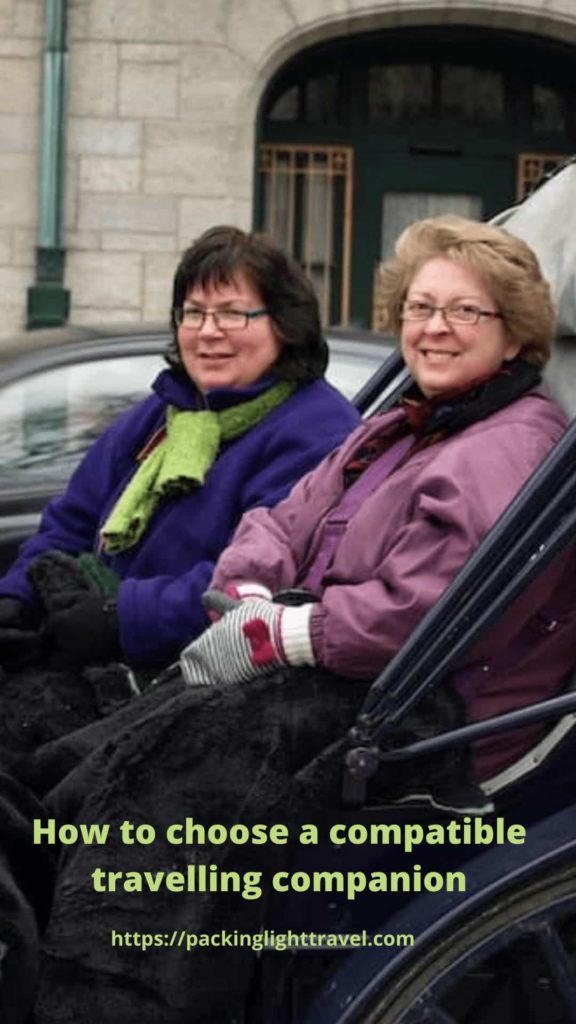Updated January 31, 2022
Anyone who has travelled with others knows that choosing a compatible travelling companion is one of the most important decisions of a trip. The right person can enrich a travel experience; the wrong person can turn a trip into a disaster, end a friendship, or ruin a relationship.
Unfortunately, many travellers fail to invest the necessary time and energy in this aspect of trip planning. Hopefully, these three easy steps to choosing a compatible travel partner will offer some valuable ideas.
This is Part 1 of an article about choosing compatible travelling companions. Part 2: A comprehensive travel partner compatibility questionnaire has a detailed list of questions to inspire a pre-trip dialogue with a potential travel buddy to determine compatibility.
Table of Contents
Introduction
Many people have discovered that travelling with a friend, colleague, or life partner can put the most solid of relationships to the test. Unfamiliar surroundings, a foreign language, fewer comforts, unusual food, and unexpected challenges can push people out of their comfort zone. These can trigger reactions and behaviour different from those observed at home. Some can adversely affect a travel experience.
Risks can be greater travelling with a ‘stranger buddy.’ Increasingly, people are looking to travel sites and Facebook groups to find a travel partner. Or, to avoid paying a single supplement on a tour, they rely on the tour company to match them up with a room-sharing partner. These arrangements are always a gamble without pre-trip efforts to determine compatibility.
 Munich, Germany
Munich, Germany
Horror stories: travelling with the wrong person
Is there anything to be gained by dragging up negative memories of trips with the ‘wrong person’? Or recalling frustrating moments with the ‘right person’?
I think doing so can be helpful. They:
- reinforce the importance of choosing a compatible travel partner
- suggest that selecting an acceptable travel partner shouldn’t be a cursory exercise
- help highlight your needs as a traveller
- help reveal some of your idiosyncrasies in a travel context
- provide clues about what you appreciate in a travel partner
- suggest how you might be a better travel buddy for others
- stimulate ideas on how to structure a trip in a way that meets everyone’s needs
- offer ideas on questions to ask a potential travelling companion to determine compatibility
- reinforce why you enjoy solo travel
The following ‘horror stories’ are from actual examples shared on social media, contributions from friends, and my own experience.
- My travel buddy refused to do anything because “it costs too much.” That meant no restaurants, guided tours, cooking classes, museums (unless free), and food tours.
- My friend was a slob. She left stuff scattered throughout our self-catering unit and the bathroom and kitchen in a mess. I felt forced into the role of a janitor for our entire vacation.
- My travelling companion invited a guy back to our accommodation, and he never left. He didn’t contribute to our shared expenses and when it was time to check out, my travel partner had no money left to pay her share of the costs.
- A friend invited herself on one of my trips and moaned constantly. She wouldn’t get out of bed each morning until she’d had a cigarette and refused to leave our accommodation until she’d had two cups of coffee.
- My partner read. every. menu posted outside every. single. restaurant we passed while I waited and grew hungrier and hungrier. It was excruciating.
- I planned a two-week trip to Poland, and a friend asked if she could come. We agreed on an itinerary and planned to rent a car. Then, she invited another friend with no prior discussion, and that person asked a fourth person. We went ahead with the trip, but it complicated bookings for accommodation and created hard feelings. We kept the original itinerary, but it didn’t appeal to the latecomers who were more interested in shopping and spent a lot of time in the car while my friend and I explored.
- On our tour, two women shared a room. One couldn’t sleep without the TV on, and the other couldn’t sleep with the noise and the light from the TV. They ended up taking turns, so one of them had a horrible sleep every second night. Also, one wanted the air conditioning on all the time, and the other didn’t.
- I like to get up at the crack of dawn, even on vacation, and am ready to start my day by 08:00. Unfortunately, my partner can’t get his motor running until 11:00 at the earliest, so travelling with him is frustrating. I always feel like my life is on hold whenever I travel with him.
- My travel style is to spend more time at fewer places, take an afternoon or day off from sightseeing, and choose a comfortable pace in museums and other sites. I travelled with someone who wanted to pack in as much as possible, day and night. It was exhausting.
- My friend wasn’t a light packer. She refused to take public transportation, so we had to take taxis, and she expected me to pay half. When the time came to get her bags up and down steps at our accommodation, she complained of a sore back and asked me to carry them. While I was doing so, she immediately grabbed the master bedroom with no discussion.
- My friend had a meltdown in the car because she needed to smoke; I’m not a smoker, and I objected because I can’t stand the smell and detest breathing second-hand smoke.
- My friend constantly needed to share her observations to the point that I felt my own thoughts and reactions were being interrupted. While I expect a travelling companion to comment on something important or extraordinary, her nonstop chatter was relentless.
- We chose to spend a few days in a quaint coastal town because it was famous for its seafood. I didn’t realize my travel buddy hated seafood. That, and the fact she constantly criticized what she was eating and drinking, made every meal an unpleasant experience.
Choosing a compatible travel partner
Consider using these three simple steps:
Step 1: Who are you as a traveller?
Before identifying who might be compatible with you, unpack who you are as a traveller.
Identifying your needs, interests, irritants, spending priorities, and travel style will help pinpoint areas where compatibility is vital. It provides clues on where your needs and interests might align with a potential travel buddy and where they could be on a collision course.
Develop a list of questions that get at the heart of who you are as a traveller. Here is a small smattering of examples:
- What personality quirks or aspects of your travel style might irritate others? Having enough self-awareness to identify them will help identify possible areas of tension or conflict.
- What irritates you? What’s the threshold at which a particular characteristic or behaviour in a travel partner would infuriate you? Which habits or behaviours are non-negotiable?
- What are your priorities, preferences, and needs as a traveller?
- Do you tend to take the lead, or are you more comfortable as a follower?
- What is your preferred pace of travel?
- What types of activities do you value most?
- How expansive or strict is your budget, and what are your spending priorities? In what areas are you frugal, and where might you splurge?
- Do you enjoy doing some things on your own? Do you need personal space for activities such as reflection, reading, or writing?
 Amsterdam, Netherlands
Amsterdam, Netherlands
Step 2: Ask the right questions
You and your travel partner will be in each other’s company a lot, possibly day in and day out. Even with people you know well, there’s no guarantee that a positive relationship enjoyed at home translates into compatibility on the road.
Whether a potential travel mate is a lifelong friend, family member, a friend of a friend, or a ‘stranger buddy,’ it pays to get as much information as possible before you both decide to travel together.
Schedule an opportunity to chat. Set up a video call. If you live in the same area, go for lunch, or spend a day exploring together. Clarify that its purpose is for you both to decide if you’ll travel together. Suggest that both parties have a period of reflection to consider what you discuss, and that you’ll be honest with each other regarding the reasons for your respective decisions.
If you’ve already decided to travel together, the purpose of the meeting will be to figure out how to make it work.
To encourage honesty and openness, consider preparing revealing details regarding some of your quirks. Might the following offer ideas?
- “A few travel partners have said I snore. Not of chainsaw proportions, but something soft enough to be easily blocked out with earplugs. Just in case, I always pack some nose strips.”
- “I travel with carry-on bags and have a low tolerance for people who can’t figure out that travelling with lots of luggage is a serious detriment to enjoyable travel. The compromise I have with one friend is that she carries all her stuff, and if we need a taxi because of her luggage, she pays for it.”
- “When I used to slip into my food-critic role while having a meal at a restaurant, it would drive my spouse nuts. We now have an agreement that any negative comments about the meal are saved until afterwards. Positive comments are acceptable.”
For ideas on areas of discussion and questions to help guide the dialogue, see Part 2: A comprehensive travel partner compatibility questionnaire. Choose those questions that work or use the questionnaire to inspire your own.
Step 3: Now what?
Here are some suggestions on what to do with this new information.
Hopefully, you’ll both be honest. If you think you’re not a good fit for each other, say so. A miserable travel experience isn’t worth the risk, for both of you.
If you’ve decided that the relationship won’t work, frame your comments as much as possible as differences in travel style, rather than criticisms or judgements about the other person.
2. Do you need a test run?
Undecided? Might a short getaway help? Consider it a trial.
3. Identify compromises and solutions
If they’re not deal-breakers, find workarounds in those areas where your travel styles differ. If necessary, schedule another discussion to explore the possibilities, and how to incorporate them into your trip.
These might include staying in different accommodation, splitting up for short periods when your interests differ, or agreeing on ‘ground rules’ to guide the relationship.
4. Go solo
It’s not as scary as you might think. A few years ago, my travelling companion had to cancel just five hours before our trip to the United Arab Emirates, Jordan, and Türkiye. During the flight, I desperately missed my friend, and wondered what new insights this sudden turn of events would reveal. I learned that travelling solo doesn’t translate into being alone. It led to conversations with locals and other travellers I wouldn’t have had, and brief travel experiences with different travel partners met along the way. I learned that I love solo travel.
 Bus park, Amman, Jordan
Bus park, Amman, Jordan
5. Find short-term travelling companions during your trip
There are plenty of opportunities to find short-term travel partners for a few hours or a few days. Sign up for a free walking tour, stay at a hostel, or take a day trip or food tour. You’ll interact with others, including other solo travellers who are interested in finding short-term travelling companions.
 Golden Gate Bridge, San Francisco, USA
Golden Gate Bridge, San Francisco, USA
If you found this post helpful, please share it by selecting one or more social media buttons. What insights do you have on how to choose a compatible travel partner? Please share your thoughts in the comments. Thank you.
Care to pin for later (or share using one of the social share buttons below)?







Great aticle! Thanks
Thank you Ann for this article. I totally agree with you. Choosing the right person to travel with is a crucial step in travel preparation and traveling solo makes for an amazing adventure.
Choosing a travel partner is as important as choosing a travel destination. Everything depends on it. Fortunately, I have my travel buddy and I am so happy for it.
Anne, this post is a homerun! I’ve been very lucky with travel companions in the past, but that was just dumb luck. It doesn’t mean it will always be that way. I’m definitely going to save this to my travel files, so that I can be prepared with a more thoughtful approach next time.
Thank you, Marti for your comment. I’ve been fortunate as well. Let’s get a shared adventure back on the agenda when things return to almost normal.
Hi Anne! Just found your site and love all the topics you cover! I’ve also done solo travel and travel with friends and it really speaks to me!
This is post is spot on. Finding a compatible travel companion really is critical to having a good trip. My last trip (a couple years ago) was to Spain and Portugal. I went with a long-time friend and we know each other well. We also went with a plan, so that helped.
But even friends at home doesn’t guarantee a great travel partner! Some of those examples above show that.. Scary! The test run idea is great btw!
Thanks!
Haemi @ Borderless Comfort recently posted…What Is Comfort Food?
I’m about to start travelling & I really appreciated this well written article. You brought up issues that had not crossed my mind as my biggest obstacle is travelling solo. Thank you
Wonderful comments 👏